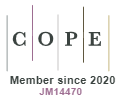Global training on maximal inspiratory pressure and functional ability of an individual with chronic stroke
DOI:
https://doi.org/10.5585/conssaude.v10i3.2620Keywords:
Aerobic exercise, Cerebrovascular accident, Exercise therapy, Gait, Muscle strength.Abstract
Introduction: Muscle weakness after stroke is not constrained to appendicular structures and also affects postural and respiratory muscles. Albeit specific respiratory training can modify respiratory parameters, a global activity intervention could reduce time and onus dispended with treatment. Objective: To analyze the effects of global training on maximal inspiratory pressure (PImax), motor disability (MD), functional capacity (FC), gait speed (GS) of a chronic stroke survivor. Method: It was conducted a case study composed by muscle strengthening and aerobic exercises. PImax was measured pre-intervention, after three weeks, and post-intervention and the other outcomes were measured pre and post-intervention. The differences on FC, GS and PImax were described with their respective absolute and percentage values. MD was analyzed according to its minimal clinically important difference. Results/Conclusion: The participant presented considerable improvement on described outcomes, increasing 250% his PImax and reaching minimal clinically important difference on MD measure, justifying new studies to test the efficacy of this intervention.Downloads
Downloads
Published
2011-09-30
How to Cite
1.
Glória AE, Nascimento LR, Paiva CMR e, Fernandes MS, Lima RCM, Moura RMF de. Global training on maximal inspiratory pressure and functional ability of an individual with chronic stroke. Cons. Saúde [Internet]. 2011 Sep. 30 [cited 2025 May 4];10(3):555-62. Available from: https://periodicos.uninove.br/saude/article/view/2620
Issue
Section
Cases studies
License
Copyright (c) 2011 ConScientiae Saúde

This work is licensed under a Creative Commons Attribution-NonCommercial-ShareAlike 4.0 International License.
Views
- Abstract 179
- PDF (Português (Brasil)) 105








